Veit Harlan
Birth : 1899-09-22, Berlin, Germany
Death : 1964-04-13
History
Veit Harlan was born on September 22, 1899 in Berlin, Germany. He was a director and actor, known for Die goldene Stadt (1942), Der große König (1942) and Jud Süß (1940). He was married to Kristina Söderbaum, Hilde Körber and Dora Gerson. He died on April 13, 1964 in Capri, Italy.
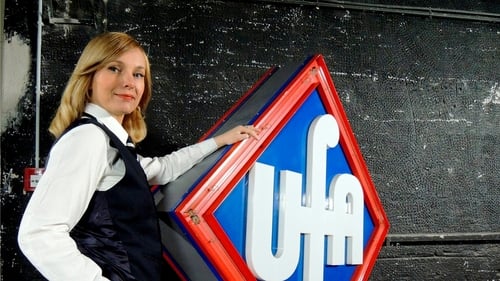
Self - Filmmaker (archive footage)
The intricate history of UFA, a film production company founded in 1917 that has survived the Weimar Republic, the Nazi regime, the Adenauer era and the many and tumultuous events of contemporary Germany, and has always been the epicenter of the German film industry.

Director

Director

Director
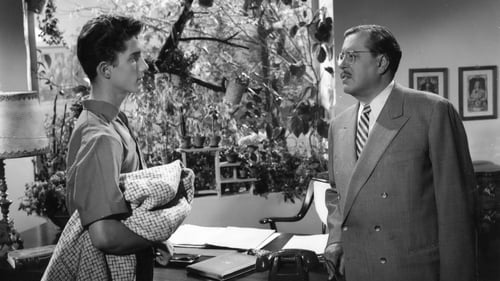
Director
Klaus is a young man in post-war Berlin. He is drawn to his friend Manfred and, under the encouragement of their acquaintance, Dr. Winkler, explore the underground world of gay clubs and electronic music. His family begins to learn of his other life and do everything they can to set him straight.

Director

Writer
A circus story

Director
A circus story

Director

Director

Writer
Hanna Amon and her brother Thomas live on an estate they've inherited from their parents. Local veterinarian Brunner loves Hanna from afar, and Thomas is in love with the daughter of the local mayor. Love, however, doesn't always mean happiness, as both Hanna and Thomas are soon to find out.

Director
Hanna Amon and her brother Thomas live on an estate they've inherited from their parents. Local veterinarian Brunner loves Hanna from afar, and Thomas is in love with the daughter of the local mayor. Love, however, doesn't always mean happiness, as both Hanna and Thomas are soon to find out.

Executive Producer

Writer

Director
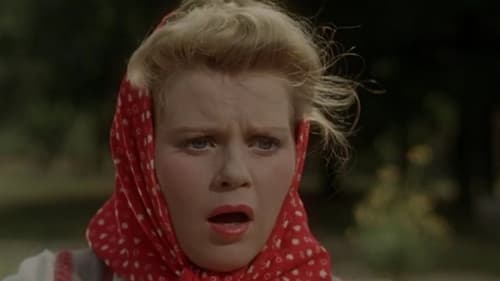
Producer
During Napoleon's victorious campaign in Germany, the city of Kolberg gets isolated from the retreating Prussian forces. The population of Kolberg refuses to capitulate and organizes the resistance against the French army, which immediately submits the city to massive bombardments.

Screenplay
During Napoleon's victorious campaign in Germany, the city of Kolberg gets isolated from the retreating Prussian forces. The population of Kolberg refuses to capitulate and organizes the resistance against the French army, which immediately submits the city to massive bombardments.

Director
During Napoleon's victorious campaign in Germany, the city of Kolberg gets isolated from the retreating Prussian forces. The population of Kolberg refuses to capitulate and organizes the resistance against the French army, which immediately submits the city to massive bombardments.

Writer
Äls, a young woman from Sweden living in Hamburg in the summer months attracts a newly married explorer, Albrecht Froben who has just returned to his native city. But although Äls seems to be 'life itself', she suffers from a tropical disease which is slowly killing her. Froben is torn between Äls and his wife Octavia, who he seen as a kind of 'heavenly' counterpart to the earthy and beguiling Äls.

Director
Äls, a young woman from Sweden living in Hamburg in the summer months attracts a newly married explorer, Albrecht Froben who has just returned to his native city. But although Äls seems to be 'life itself', she suffers from a tropical disease which is slowly killing her. Froben is torn between Äls and his wife Octavia, who he seen as a kind of 'heavenly' counterpart to the earthy and beguiling Äls.

Producer
A man and a woman struggle to stifle their love for each other, even after he moves away to travel the world and she marries a suitor.

Writer
A man and a woman struggle to stifle their love for each other, even after he moves away to travel the world and she marries a suitor.

Director
A man and a woman struggle to stifle their love for each other, even after he moves away to travel the world and she marries a suitor.

Writer
Anna Jobst is the daughter of a rich, conservative farmer. Living on the bank of the Moldau, she wishes nothing more than follow the river to Prague, the "Golden City". After arriving, she quickly falls into a bad crowd.

Producer
Anna Jobst is the daughter of a rich, conservative farmer. Living on the bank of the Moldau, she wishes nothing more than follow the river to Prague, the "Golden City". After arriving, she quickly falls into a bad crowd.

Director
Anna Jobst is the daughter of a rich, conservative farmer. Living on the bank of the Moldau, she wishes nothing more than follow the river to Prague, the "Golden City". After arriving, she quickly falls into a bad crowd.
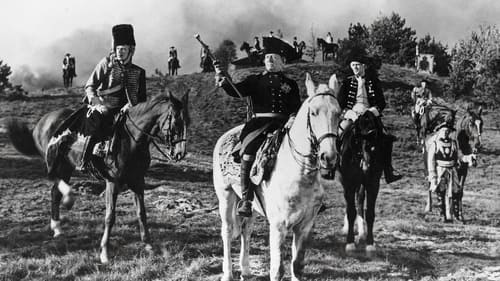
Director
King Frederick II (aka "Frederick the Great") of Prussia is engaged in a major battle against the Austrian army at Kunersdorf, and things aren't going well. The Austrians are inflicting major casualties, and his army is beginning to crumble. Defeat seems inevitable when a combination of events gives him hope that he may pull victory from the jaws of defeat after all.

Executive Producer
King Frederick II (aka "Frederick the Great") of Prussia is engaged in a major battle against the Austrian army at Kunersdorf, and things aren't going well. The Austrians are inflicting major casualties, and his army is beginning to crumble. Defeat seems inevitable when a combination of events gives him hope that he may pull victory from the jaws of defeat after all.

Director
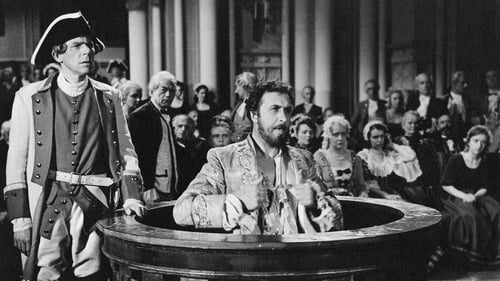
Writer
Nazi historical drama about Duke Karl Alexander of Württemberg and his treasurer Süß Oppenheimer.

Director
Nazi historical drama about Duke Karl Alexander of Württemberg and his treasurer Süß Oppenheimer.

Writer
From the same Sudermann story that inspired Murnau's Sunrise (1927). A villager is tempted by a sophisticated city woman and almost kills his wife in a boating accident.

Director
From the same Sudermann story that inspired Murnau's Sunrise (1927). A villager is tempted by a sophisticated city woman and almost kills his wife in a boating accident.

Director
Nuremberg durting the time of Albrecht Durer and the famous geographer Martin Behaim: the locksmith Peter Henlein is looking for a way to make bullets more accurate by designing a new form. Just as he welds together two round balls into an elongated shape, he believes he's discovered that his assistant Konrad is trying to alienate his wife from him. There is a struggle, during which Henlein's new kind of bullet strikes him in the chest. The doctor, unaware that there are two bullets lodged in his body, because there was only one shot, only removes one.
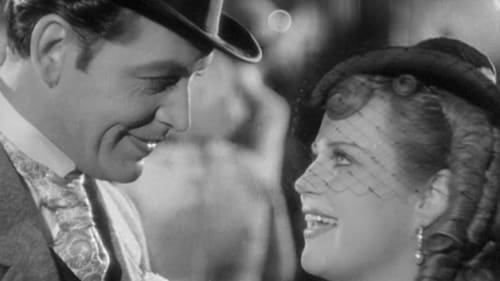
Screenplay
Séraphine and her mother arrive in Paris to visit the 1867 World Exhibition. In an overcrowded city they must be accommodated in separate hotels. During the night the mother, who wasn't feeling very well, gets suddenly worse. When next morning Séraphine goes to meet her every trace of her presence has disappeared and everybody denies having ever met her. The bewildered young woman must find someone who believes her. Previous version of So Long at the Fair (1950).

Director
Séraphine and her mother arrive in Paris to visit the 1867 World Exhibition. In an overcrowded city they must be accommodated in separate hotels. During the night the mother, who wasn't feeling very well, gets suddenly worse. When next morning Séraphine goes to meet her every trace of her presence has disappeared and everybody denies having ever met her. The bewildered young woman must find someone who believes her. Previous version of So Long at the Fair (1950).

Director
Germany, 1890: Having just gotten his high-school diploma, Hans leaves for Heidelberg to begin his university studies. But first, he wants to visit his uncle, Pastor Hoppe, in the small village of Rosenau. It's here that he again meets his cousin and childhood friend Annie. Annie is the illegitimate child of Pastor Hoppe's sister, who's left the upbringing of her offspring to the man-of-the-cloth. Conservative chaplain Schigorski continually tries to convince Annie to join the nearby cloister and thus "atone" for the sins of her mother. And it's getting more difficult for the fun-loving girl to escape the chaplain's harrassment. When Hans arrives, old feelings of lust come back to the surface.

Director
Sylvia has succeeded in making her son Robert a minister in the French Republic. His old servent, Gabriel, interrupts the young man during an "erotic" conference with the singer Betty. She's there, because her politically inappropriate songs is about to get her banned from the stage, which the minister would like to prevent. A fight breaks out between Robert and Gabriel and Sylvia, his mother, has to confess to Robert, that Gabriel is actually his father. When the minister once again misbehaves, this time at a ball, his servant and father Gabriel decides that the time has come to slap his son in everyone's presence. Robert is forced to resign and a journalist from the People's Front suggests Gabriel for the post of minister. - The film was classified after the end of the german third empire as a reservation film.

Director
Der Herrscher (The Sovereign) was based on Before Sunset, a play by Gerhart Hauptmann. The great Emil Jannings stars as Mathias Clausen, a self-made businessman who is forced to do a great deal of soul-searching when his wife unexpectedly dies. Determining to start life anew, he falls in love with his secretary Inken (Marianne Hoppe) and impulsively takes a vacation to Italy. Clausen's selfish grown children, not wishing to share their father's affections -- nor his money -- with his new wife-to-be, go to court demanding that Clausen be declared mentally incompetent. Upon finding this out, Clausen flies into a rage, leaving the audience to wonder whether or not he really as gone off his trolley. Der Herrscher was directed by Veit Harlan, more famous (or notorious) for his viciously anti-Semitic Jud Suess (1940).

Director

Writer

Director

Director

Director
A fast-paced comedy revolving around secrets and mix-ups. Theodor is a husband who helps his expulsed niece with her careers as a singer. His wife mustn't know this so he secretly takes a job as maître d' at a big hotel. This doesn't just lead to him always being tired but to all kinds of other troubles.

Director

Director

Antonio Stradivari

Pierre
France in the 15th Century: The country is marked by the wars with England and internal power struggles. King Charles sees himself powerless against the state. As emerges from the people suddenly a young woman named Johanna, who claimed that the Archangel Gabriel to be appointed, to save France. First of all doubt the king in their words, but he remembers that the people through this "help of God" is gaining new courage. With the slogan "God and the Virgin!" pulls the revivified victorious army into battle against the English-Burgundian alliance. After Johanna King Charles is crowned at Reims, there breaks the plague over the country in. Now Johanna all the blame on the disaster: God would punish believe in the country for that a heretic; if Johanna were actual a holy, she would deal also with the plague. The waning faith weakens France, England is again on the rise. But Johanna is executed as a witch. Only years later annulled the verdict of the Holy and Johanna explained.

Korporal

Andreas

Georg Brinkmann

Der Unbekannte
Film by Lamac.

Enrico Tortoni, Mitglied der Truppe Manzetti

Schwartzkopf

Inose Hironari

Paul
The story of the rise to power of King Frederick II (aka "Frederick the Great") of Prussia of his military campaigns to make Prussia a major power in Europe.

Friseur Jonny

Herzog Karl August von Weimar
Based on Franz Lehar's operetta, about the first woman whom the great German writer Goethe fell in love with.

Klaus Gabain

Otto Weigandt

Ein Student
Toni van Eyck became known with her leading role in this early "Aufklärungsfilm" (education film) Gefahren der Liebe/A Woman Branded (Eugen Thiele, 1931) opposite Hans Stüwe. She played a rape victim, who finally becomes a murderess.

Kurt

Originally named "The Clairvoyant" presenting the many talents of parapsychologist Elsbeth Günther-Geffers. First banned, later extensively reworked.

Paul

David

Mandelstam
A woman loses her undergarments in public. Chaos ensues.












